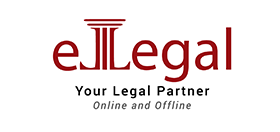

© eLegal, All Rights Reserved | @cruxtechng


Contact us through our WhatsApp chat, web form or our toll free number, stating your full contact information, the service you would like to be provided and a request for a quote from our expert consultants.
Receive and review our quote alongside the details of the legal service to be provided, approve the quote and pay through any of our listed reliable payment system.


Receive a fast and reliable delivery of the legal advice and documents from our expert lawyers.
At eLegal Consultants, we provide faster, convenient and affordable legal services in a click of a button.
Medical disputes can be emotionally and financially draining for individuals and their families. In Nigeria, where healthcare services are continually evolving, disputes between patients and healthcare providers are not uncommon. These disputes may arise from misdiagnosis, surgical errors, negligence, improper treatment, or even billing issues. Resolving such conflicts amicably and efficiently is crucial to ensuring justice, maintaining trust in the healthcare system, and providing closure to affected parties. This guide provides a detailed overview of dispute resolution in medical cases for individuals in Nigeria, outlining the available options and steps to take.
A medical dispute occurs when there is a disagreement between a patient (or their family) and a healthcare provider regarding the quality, outcome, or delivery of medical services. In Nigeria, such disputes often stem from:
Medical Negligence: Failure of a healthcare professional to provide the standard of care expected, leading to harm or injury.
Misdiagnosis or Delayed Diagnosis: Incorrect or late diagnosis that results in worsened health conditions.
Surgical Errors: Mistakes during surgery, such as operating on the wrong body part or leaving surgical instruments inside a patient.
Medication Errors: Prescribing or administering the wrong medication or dosage.
Lack of Informed Consent: Performing procedures without adequately informing the patient of the risks and alternatives.
Billing Disputes: Overcharging or discrepancies in medical bills.
When such issues arise, individuals have the right to seek redress through various dispute resolution mechanisms.
In Nigeria, individuals can resolve medical disputes through the following avenues:
1. Direct Negotiation with the Healthcare Provider
The first step in resolving a medical dispute is to communicate directly with the healthcare provider or hospital administration. Many disputes can be resolved through open dialogue, where the parties discuss the issue and agree on a mutually acceptable solution, such as an apology, refund, or corrective treatment.
This approach is cost-effective and preserves the relationship between the patient and the provider.
2. Mediation
Mediation involves engaging a neutral third party (mediator) to facilitate a resolution between the patient and the healthcare provider. The mediator does not impose a decision but helps both parties reach a compromise.
In Nigeria, mediation is increasingly being adopted as a preferred method for resolving medical disputes due to its flexibility, confidentiality, and speed.
Organizations like the Medical and Dental Council of Nigeria (MDCN) and private mediation firms offer mediation services for medical cases.
3. Complaint to Regulatory Bodies
Individuals can file a formal complaint with regulatory bodies such as the Medical and Dental Council of Nigeria (MDCN) or the Health Facilities Monitoring and Accreditation Agency (HEFAMAA). These bodies investigate complaints and may impose sanctions on erring healthcare providers.
The MDCN, for instance, has a disciplinary tribunal that handles cases of professional misconduct by doctors and dentists.
4. Arbitration
Arbitration is a more formal process where an arbitrator (or panel of arbitrators) hears both sides of the dispute and makes a binding decision. It is faster and less expensive than going to court.
In Nigeria, arbitration is often used in medical disputes when both parties agree to this method. The Arbitration and Conciliation Act governs arbitration proceedings in the country.
5. Litigation (Court Action)
If other methods fail, individuals can pursue legal action in court. Medical disputes in Nigeria are typically handled under the law of torts, specifically negligence.
To succeed in a medical negligence case, the plaintiff must prove:
That the healthcare provider owed a duty of care.
That the duty was breached.
That the breach caused harm or injury.
That the harm resulted in quantifiable damages.
Litigation can be time-consuming and expensive, but it is sometimes necessary to achieve justice, especially in severe cases.
Document Everything: Keep detailed records of medical treatments, prescriptions, bills, and communications with the healthcare provider. This evidence will be crucial in resolving the dispute.
Seek Legal Advice: Consult a lawyer specializing in medical law to understand your rights and options. Many law firms in Nigeria offer free initial consultations.
File a Complaint: If direct negotiation fails, file a complaint with the relevant regulatory body or initiate mediation/arbitration proceedings.
Consider Alternative Dispute Resolution (ADR): Explore mediation or arbitration before resorting to litigation, as these methods are often faster and less adversarial.
Pursue Litigation if Necessary: If all else fails, proceed to court with the assistance of a qualified lawyer.
Why Choose Our Professional Dispute Resolution Services?
Engaging professionals for dispute resolution in medical cases offers several benefits:
Expertise: Mediators, arbitrators, and lawyers specializing in medical disputes have the knowledge and experience to handle complex cases.
Confidentiality: ADR processes are private, unlike court cases, which are public.
Cost-Effectiveness: ADR is generally less expensive than litigation.
Speed: ADR processes are faster than court proceedings, which can take years in Nigeria’s congested judicial system.
Dispute resolution in medical cases is essential for protecting patients’ rights and ensuring accountability in Nigeria’s healthcare system. Whether through negotiation, mediation, arbitration, or litigation, individuals have several options to seek redress. By understanding these mechanisms and seeking professional assistance, patients can navigate the complexities of medical disputes and achieve fair outcomes.
If you or a loved one is facing a medical dispute, do not hesitate to contact us.
Our firm offers comprehensive dispute resolution services, specifically designed to address the unique challenges of medical negligence cases. We employ a range of strategies, including negotiation, mediation, and arbitration, to resolve conflicts efficiently and amicably. Our approach is designed to minimize stress and cost for our clients, while achieving fair and equitable solutions for all parties involved. We understand the sensitive nature of medical negligence disputes and are committed to providing compassionate and effective legal support throughout the resolution process.
As our name suggests, we offer you the best comprehensive legal solution online and offline.

© eLegal, All Rights Reserved | @cruxtechng
